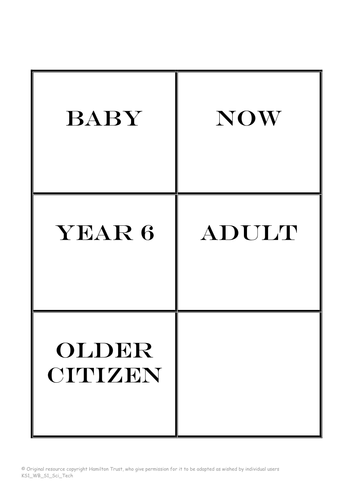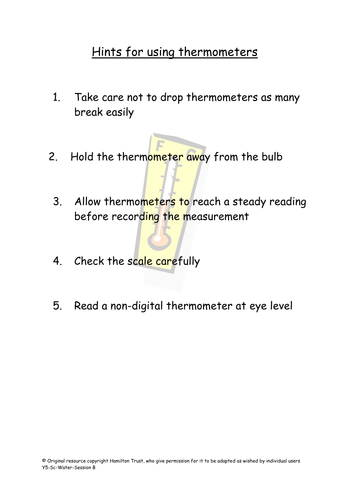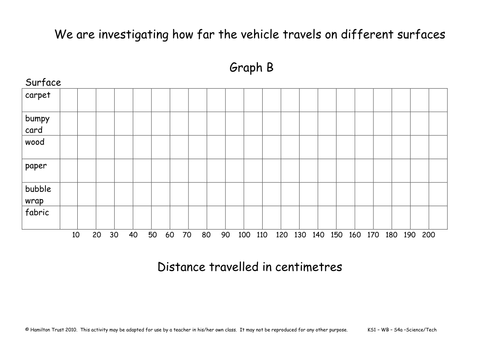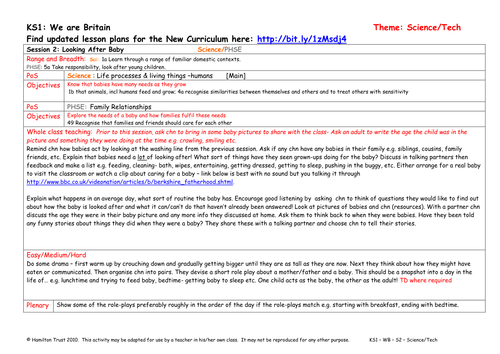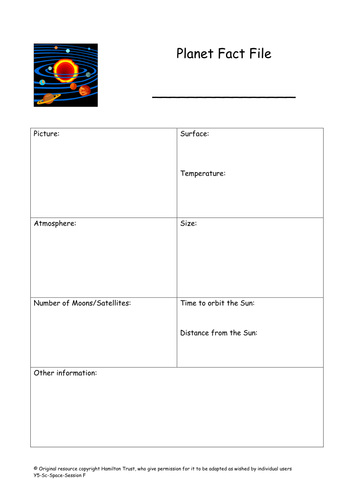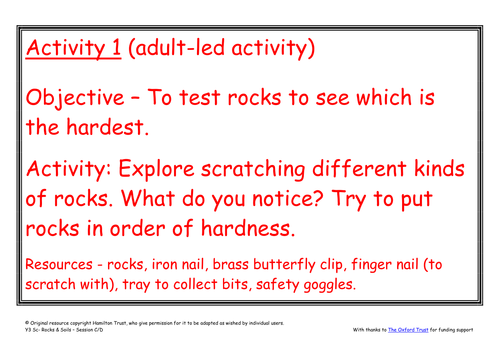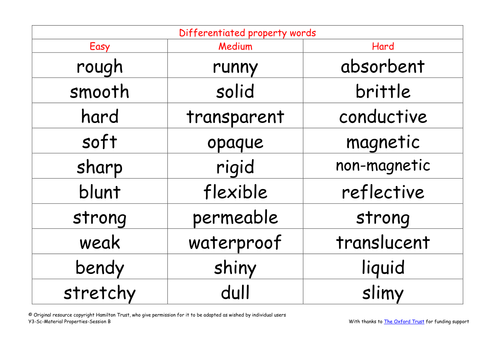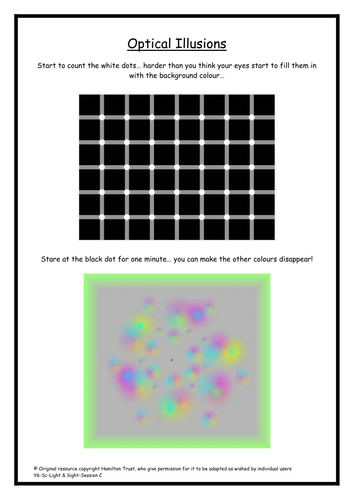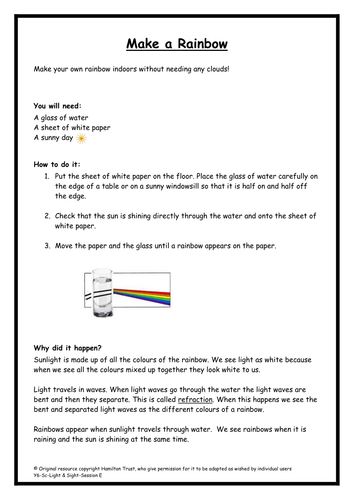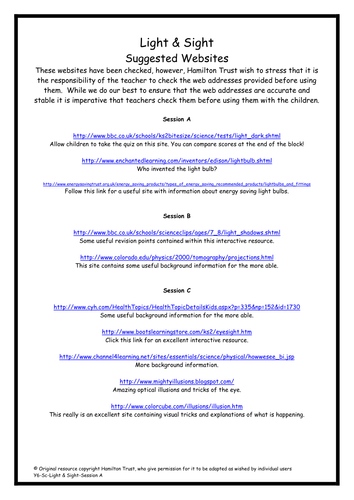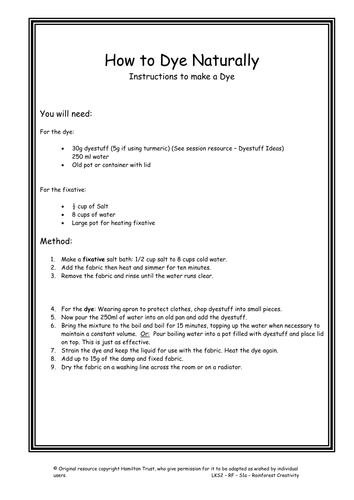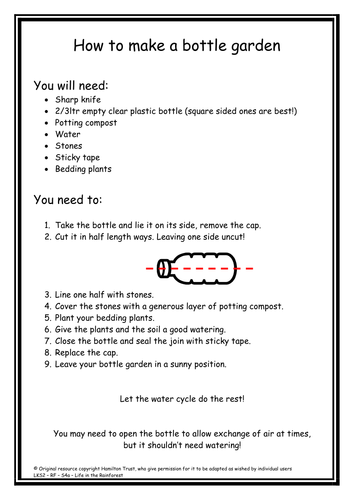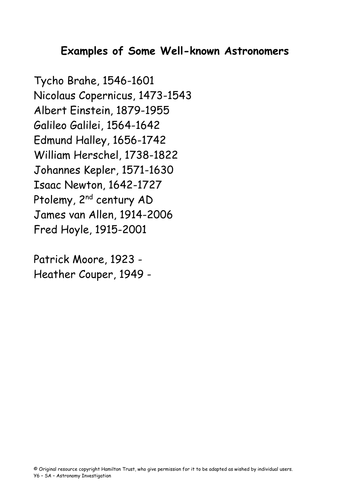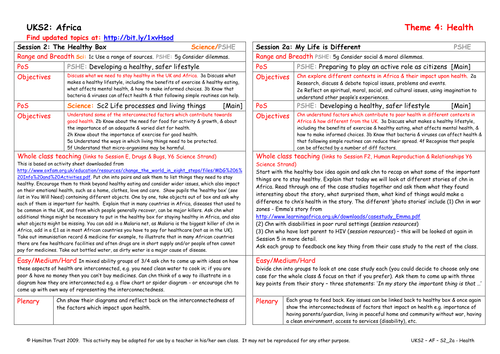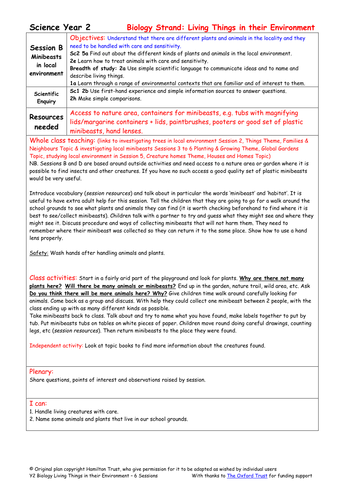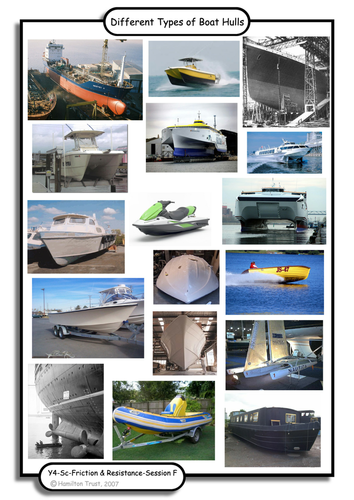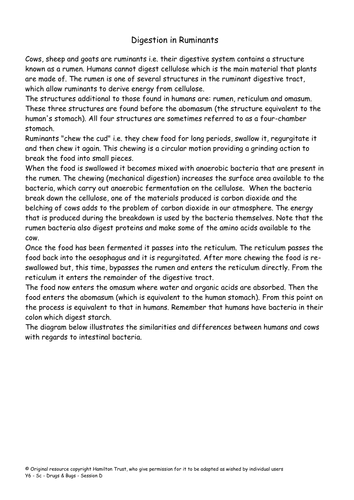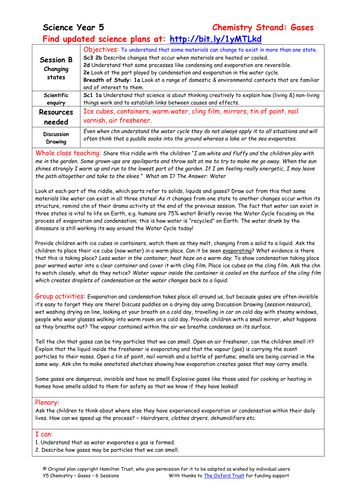
397Uploads
10045k+Views
11646k+Downloads
Elementary science

Journey of Life
How have we changed since we were babies? How will we change as we grow up? Children explore these questions by thinking about the different stages of life and recording their thoughts in zig-zag books.

Freezing and boiling
Children practise using thermometers to measure temperature accurately. They find the freezing and boiling points of water and discuss what happens if you add salt to the liquid. Use coloured ice cubes to investigate properties of solids and liquids. Suitable for Y5 pupils.

Explore friction using toy cars
Work with a group to investigate friction and to see what happens to the distance a toy car travels when you change the surface at the bottom of a ramp. With support understand what makes a test fair and how to measure accurately.

Looking after Baby
What’s it like to look after a baby? Children have the opportunity to see a real baby and ask the mother questions about life with a baby! They then use drama to explore family life and the needs of a baby.

Planets
In this session children blast off to the far flung corners of the galaxy to find out more about the planets that make up our solar system. They collect data in the form of a fact file used to report back to the rest of the class.
Suitable for Year 5 pupils.

Explore rocks further
Take part in more practical workshop activities including separating sand and stones by sieving, using ICT to research rocks, looking up vocabulary in dictionaries, sorting and naming rocks and testing the effect of vinegar on rocks.
Suitable for Y3 pupils.

Everyday uses of materials
Make a water container out of a paper towel to get children thinking about the importance of understanding material properties. Look closely at some great new vocabulary to describe materials and make a large glossary for the classroom.
Suitable for Y3 pupils.

Eyes
Children get an insight into sight in this session. They find out that to see things, light needs to enter the eye, and how their eyes function. They also find out how to care for their eyes and that sometimes eyes can even play tricks on us!
Suitable for Y6 pupils.

'Insight into Sight'
It’s time to prepare exhibits for a Science Fair called ‘Insight into Sight’ which brings together many of the concepts introduced in this block. In this session children create artefacts and prepare their explanations.
Suitable for Y6 pupils.

Sources of light
Time to shed some light on what the children already know in this session as they create a concept map and are quizzed on their current understanding! They then identify sources of light and find out why the Moon isn’t one of them!
Suitable for Y6 pupils.

Natural Colours, Natural Dyes
The book Deep in a Rainforest shows that the rainforest really is as bright as a rainbow. Children get access to a variety of natural materials and prepare them to create natural dyes. They record the process and dye small pieces of fabric.

Water Cycle in Miniature
On Earth we still have the same drops of water that touched the lips of the dinosaurs! In this session children use all that they have learnt in the previous session to create a self contained bottle garden.
Suitable for years 3 and 4.

Stars and Moon
Find out about stars and how they are grouped into constellations, despite being a long way from each other. Make a simple telescope to study the stars and a planisphere to identify them. Study the phases and apparent movement of the moon.
Suitable for Y6 pupils.

The Healthy Box
Explore with Children the basis needs to ensure good health, and how they are interconnected using the concept of a ‘healthy box’.
Suitable for years 5 and 6.

Explore forces using toy cars
Understand that forces are pushes and pulls and make things speed up and slow down. Understand what makes a test fair and how to measure accurately. As a class and using toy vehicles investigate what happens if you change the height of a ramp.

Animals including Humans - Healthy Animals - Year 2
Hatch eggs and study the life cycle of chickens. Build understanding that exercise makes the heart work harder and that it is an essential part of a healthy lifestyle. Find out about healthy lunch box foods before designing and sharing your own snack.
Includes 6 session plans & resources
01 - Hatching eggs!
02 - Babies!
03- Stranded!
04 - Healthy hearts!
05 - Deep inside my lunch box!
06 - Pack a healthy picnic!
Hamilton’s science scheme provides children with a broad but comprehensive experience of primary science that systematically covers all of the National Curriculum for England objectives. Each year group is split into 6 blocks of 6 sessions, each of which can be completed within a half-term. We present them in a recommended teaching order, but you may adapt this to fit your requirements. Working scientifically, investigations and meaningful outcomes are fully incorporated in each block.

Minibeasts in local environment
Go on a walk in the school grounds to discover there are different plants and animals in the local environment. Collect minibeasts. Think about where we might find them. Name, label and draw minibeasts back in the classroom. Suitable for Year 2 pupils.

Boat investigation
In this session children investigate how the shape and surface area of a boat can affect how easily it can move through the water. Children test a variety of designs before creating bar charts to show their results. Suitable for Y4 pupils.

Useful micro-organisms
Discuss bacteria living in and on humans and compare our digestive system with that of ruminants. Find out how bacteria help us to recycle waste and make river water safe for us to drink. Visit the Microbe Zoo! Ask 'What does our skin do?' 'Is there life on Mars?'
Suitable for Y6 pupils.

Changing states
Water doesn’t just dry up… it changes state! In this session children investigate how water can exist in all three states and look for evidence of water as vapour, drawing diagrams to explain what is happening. Suitable for Year 5 pupils.

